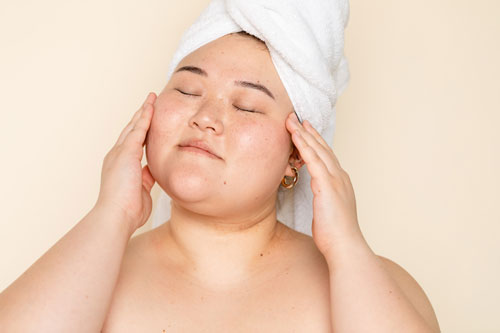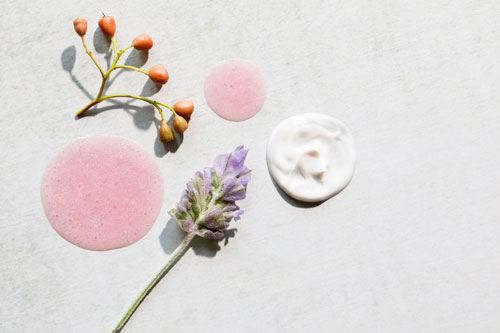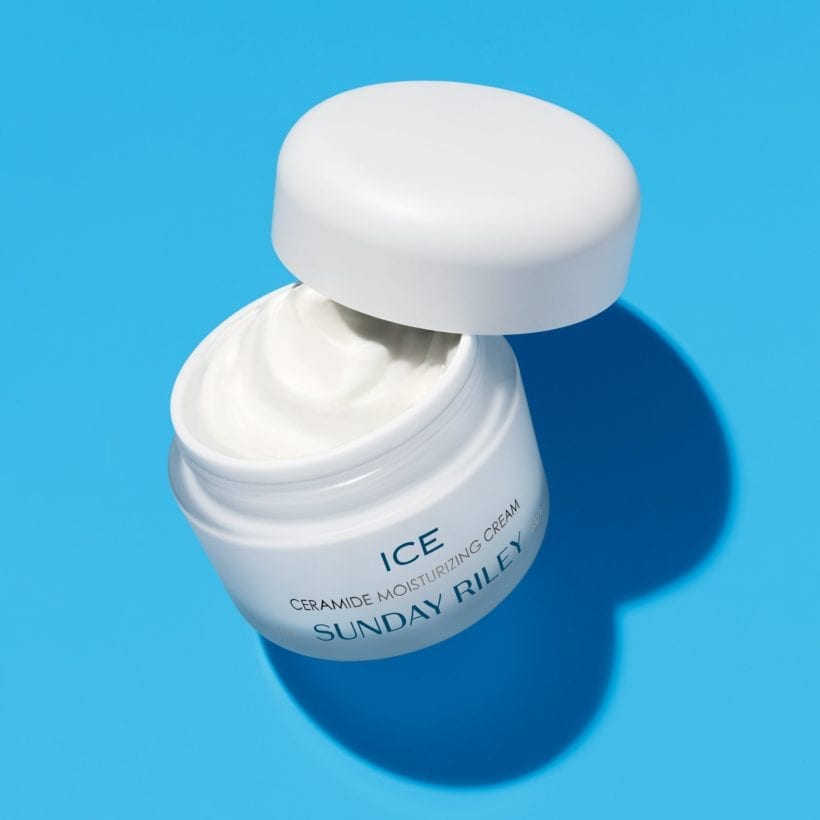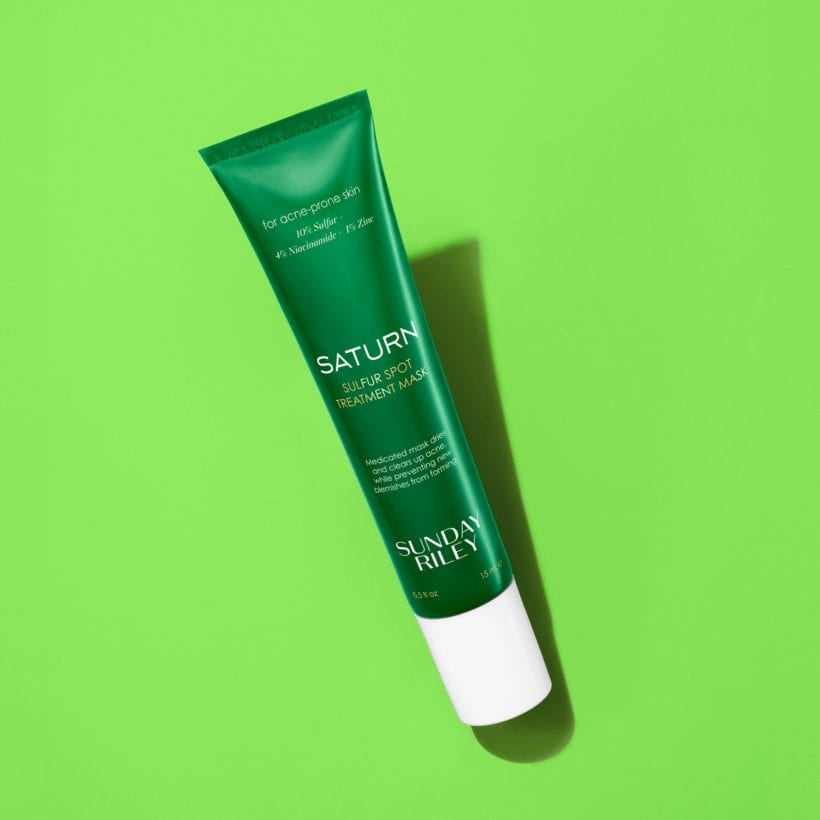Spring is the season of renewal, and nowhere is that truer than when it comes to your skin. As temperatures begin to rise and you start shedding all your winter layers of clothing, your skin is undergoing its metamorphosis. After months of icy temps, indoor heat, and constantly dry air, chances are your skin barrier isn’t feeling or looking its best.
Skin barrier 101
A quick refresher on your skin barrier and why it’s so important to keep it healthy. On the surface (pun intended), the skin barrier is exactly what it sounds like: As the largest organ in your body, your skin is the barrier between you and bacteria, germs, harmful pollutants, and damage from heat or cold. In short, it keeps the bad stuff out and keeps your body’s moisture in. Damaged skin (dry, cracked, burnt, etc.) can compromise these vital functions and leave you susceptible to infection, says Sejal Shah, M.D., a board-certified dermatologist and founder of Smarter Skin Dermatology in New York.

The effect of winter on the skin
The colder, dryer winter months are a nightmare for your skin barrier. “Cold temperatures and wind outside combined with extra heat and dry air indoors can easily dry out and irritate the skin,” says Elizabeth Mullans M.D., a board-certified dermatologist at Uptown Dermatology in Houston. Moisture is the key to optimal skin barrier health (more on that in a moment), making winter a season-long irritant.
Winter allergies also pose a seasonal risk to your skin barrier. Indoor allergens like dust, mold, and pet dander can also cause irritation that damages the skin, Dr. Mullens says.
Finally, all those warm layers you pile on in the winter? They can damage your skin barrier too. Heavy, scratchy fabrics can cause dryness and irritation. Wool is a particularly common enemy of a healthy skin barrier as it “often causes eczema flare-ups and can often irritate the skin,” Dr. Mullans adds.

How to repair your skin barrier for summer
To repair your skin barrier after a long, dry, scratchy winter, there are three things you must do: moisturize, moisturize, and moisturize some more. (Okay, so really, that’s one very important thing.) “Keeping the skin hydrated means keeping the skin healthy,” says Dr. Mullans.
Not all moisturizers are created equal when it comes to optimal skin barrier repair. To avoid unintentional irritation, “look for products that are hypoallergenic and free of dyes and perfumes,” says Dr. Mullans. For the deepest, most reparative hydration, look for formulas that contain ceramides, hyaluronic acid, or niacinamide.
Ceramides
Ceramides are a type of fat molecule which occurs naturally in your skin; if your skin is like a brick wall, ceramides are the mortar. Essentially, they help your body lock in moisture, so any skincare product containing ceramides will moisturize in the moment and help your skin hold on to hydration.
Hyaluronic Acid
Hyaluronic acid also occurs naturally in the body and delivers a reparative dose of hydration when applied topically. HA works as a moisture multiplier, binding to water to give skin that glowy appearance.

Niacinamide
In addition to being an acne-fighter, niacinamide is also a skin barrier rebuilder, strengthening skin from the inside out by building a stronger lipid barrier.
Sodium Hyaluronate
This powerful humectant that attracts and also binds water to your skin. Thanks to its lower molecule weight, it has an impressive moisturizing effect.
How to keep your skin barrier safe in summer
In addition to hydration, adding humidity back into your environment can also help strengthen your skin barrier — even in the summer if you live in a dry climate. Dr. Mullans recommends using a humidifier at night (or even during the day if you’re spending a lot of time indoors with the heater running). Just be sure to clean it regularly to avoid releasing bacteria or mold into the air, she adds, which will harm your skin and cause other health issues.
To mitigate the irritation caused by scratchy winter fabrics, Dr. Mullans recommends using a hypoallergenic detergent (she likes Arm and Hammer Sensitive Skin Free & Clear laundry detergent). “It is gentle on the skin and can help you avoid reactions and flare-ups,” she says. If you’re prone to eczema or dermatitis, opt for moisture-wicking fabrics and change out of sweaty clothes ASAP.

Don’t slack on protecting your skin barrier throughout the summer — the hotter months are also filled with environmental risks that can harm your skin. The biggest risk factor is, no surprise, the sun. It should go without saying that UV damage from sunburn is harmful to your skin barrier. Wear SPF daily and pay special attention to your face and neck, where the skin barrier is more fragile. “Avoid excess sun exposure and seek shade when you can — especially when the sun is strongest during the day,” says Dr. Shah. Even when you don’t burn, the extra time in the heat and sun can still damage and dry out skin, Dr. Mullans says. So, in addition to sunscreen and a religious moisturizing routine, she emphasizes the importance of hydrating from the inside out — drinking lots of water can help keep your skin barrier strong.
The temperature change can also trigger eczema flare-ups, says Dr. Mullens, as “sweat can build up behind the knees and other places where eczema flare-ups often occur.” This is one instance where the best thing you can do for your skin barrier is to keep it dry.
We only recommend products we have independently researched, tested, and loved. If you purchase a product found through our links, Sunday Edit may earn an affiliate commission.










